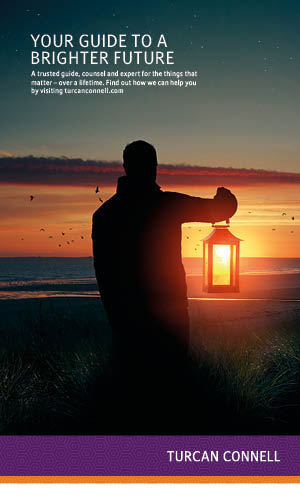NEWS
Charities miss out on direct debit willingness
More than one in three people (38%) say they are more likely to give money to charity in the festive season, according to a survey conducted by First Capital Cashflow. A second survey by the company has revealed that 26% of Britons are planning to set up a direct debit that will enable them to give money to their favourite charities on a regular basis. Unfortunately, statistics have shown that nine out of 10 charities don’t yet offer such services.
Capital Cashflow warns this is an opportunity that charities cannot afford to miss, as the Institute of Fundraising recently pointed towards research that showed charitable direct debit cancellation rates have fallen sharply of late. The average annual rate of cancellation has dipped to 2.67% in 2014 - down from over 4% in the recessionary years of 2008 and 2009.
In short, says the company, people who sign up for a regular direct debit payment appear to be increasingly likely to maintain their financial commitment over a prolonged period.
Helen Hannah, commercial director at First Capital Cashflow, says the statistics show that charities need to cater for the growing demand for technology and convenient payment options if they are to get the most out of their fundraising efforts. She emphasises: “It’s particularly important to have technology in place during peak giving periods."
Brits will not donate to 94% of UK's charities
Research developed by social donations platform Givey has revealed that the UK’s smaller charities are losing out on 42% of donations, as over two fifths of British adults say they are more likely to give to a well known charity based on a perception that big name organisations are safer and easier to support.
Overwhelmingly, says the research, the UK public is predominantly moved by the issues or events that directly affect them and their close personal networks, including friends, family, and work colleagues. Over half (53%) of British adults – or 27.24 million people – said they are most inspired to donate to causes close to home. This was in stark contrast to the 12% affected by general current affairs.
However, when asked how they would select a specific charity which supports their chosen cause, a quarter (25%) are more likely to give to a charity with a prominent media profile compared to those which do not. This rises to 38% of 18-34 year olds who agreed with this statement. Statistics also emerged that highlight the plight of smaller charities without major promotional budgets at their disposal; 20% of the sample, or 10.27 million adults, are more likely to support a charity in response to advertising or marketing campaigns.
Among the millennials (birth years ranging from early 80s/mid 90s to early 2000s) asked in the survey, almost a third (31%) are more likely to be swayed by advertising and marketing.
According to 2016 statistics from Nielsen, charities committed to an estimated £458.8 million in advertising spend in the year to June 2016, marking a 6% increase on the previous 12 months. However, as 25% of adults said they struggle to find or donate to smaller organisations, Givey says this suggests that lesser-known charities with smaller promotional budgets are being muscled out by the industry heavyweights.
The latest edition of the World Giving Index by the Charities Aid Foundation ranked the UK as the most generous country in Europe – a sentiment reflected by Givey’s research which found that 74% of respondents give to charities. However, despite the nation’s generosity, 21% of the survey said they sometimes back out of donating due to a complicated or time consuming process. This equates to 11 million people’s donations that fail to reach the cause that matters most to them.
As data from the Charity Commission in September 2016 revealed that the largest 6% of UK charities receive 90% of annual donations, Givey warns that the majority of charities in terms of numbers face a serious disadvantage.
"Preventable" cancers attract less donations
Research by the Oral Health Foundation has discovered that cancers which we see as "preventable" are less likely to receive donations than other types. The research looked at attitudes towards cancer and discovered that charities which represent cancers that are traditionally associated with lifestyles choices, such as smoking and drinking, are up to 11 times less likely to receive donations compared to charities representing those which aren’t.
The most popular choice for cancer charity donations by far was breast cancer, with a vast 44% of total donors saying they would be most willing to support this cause. 85% of respondents perceived breast cancer as non-preventable.
At the other end of the scale, less than one in three (30%) thought mouth cancer was preventable. This seemingly had a significant impact on the likelihood of donations to associated charities, with as little as 4% saying they were most likely to offer support to mouth cancer charities.
The research findings come at a time when the charity has finished a special month-long campaign, sponsored by Denplan, to educate people about the causes of mouth cancer, so that more of us realise that anybody can develop mouth cancer and that it is not always diagnosed as a result of lifestyle factors.
Dr Nigel Carter, CEO of the Oral Health Foundation, says: “Unlike many other types of cancer, the number of mouth cancer cases in the UK are continuing to rise at an alarming rate and alongside this survival chances are not seeing any improvement either. More support is desperately needed to help mouth cancer sufferers face up to mouth cancer and overcome it.
“Although many cases are linked with smoking and drinking, many are not and this is an issue which we all need to understand. Literally anybody can develop mouth cancer and without the level of support that some other types of cancer sufferers get their chances of beating the disease are far,far lower."
The charity’s research also revealed some trends that an encouraging 11% of 18-25 year olds said they would be likely to donate to mouth cancer charities, almost three times more than the any other age group.
Regulators warn on third party fundraisers
The Charity Commission and the Fundraising Regulator have issued a joint alert to charities which fundraise from the public. It reminds trustees that they must comply with their legal trustee duties when overseeing their charity’s fundraising, as set out in the in the Commission’s guidance, Charity fundraising: a guide to trustee duties (CC20).
The alert stresses that where a charity is working with a third party to raise funds, compliance with trustee duties means having effective systems in place to keep control of the fundraising, and taking steps to properly protect the charity’s interests, assets and reputation. It also means compliance with relevant legal rules, including those designed to make third party fundraising arrangements transparent to donors, supporters and the public.
Professional fundraisers and commercial participators are responsible for ensuring that the specific legal rules that apply to them and the arrangements they make with charities are followed. However, the Commission’s view is that, to comply with their charity law duties, trustees must also ensure that their arrangements with these fundraisers are in line with these rules. Failure to do this will generally amount to misconduct and mismanagement of the charity’s affairs.
The Commission and the Fundraising Regulator have significant concerns about a number of cases where trustees have entered into arrangements with third party fundraisers that are not transparent and are detrimental to the charity and its supporters.
Therefore the Commission and the Fundraising Regulator are warning charities to avoid entering into fundraising arrangements that include one or more of the following characteristics:
- Arrangements with a third party fundraiser which bear all the hallmarks of a professional fundraiser arrangement, but which are structured to avoid the legal rules. The fundraiser may be described as an adviser or consultant in the contract even though in reality they are really controlling the solicitation of funds on the charity’s behalf. These arrangements can also mean that it is not clear to the donor that the fundraising is being delivered by, or with the significant involvement of, a third party at a significant cost to the charity.
- Medium or long term contracts that have very limited termination or adjustment provisions.
- Arrangements in which the charity only benefits from the arrangement at the very end of the contract term, and where there is the possibility that the charity will not benefit at all.
- Arrangements where the fees received by, or payments made to third party fundraisers damage public trust and confidence in that charity.
Protection from third party fundraising
The new Charities (Protection and Social Investment) Act 2016 requires that from 1November 2016 all commercial participation agreements must contain provisions about how the commercial partner will protect vulnerable people and others from pressurising fundraising techniques, and set out the voluntary standards of charity fundraising to which the commercial partner will adhere.
Law firm Stone King warns here are no transitional provisions in the Act, which means that existing arrangements also have to meet the new requirements. The firm says the Fundraising Regulator may take a proportionate approach to existing arrangements, but charities should update their current arrangements to ensure compliance.
Stone King suggest that if your charity has commercial partnership arrangements it should undertake the following course of action. If there are any arrangements which are ongoing, you should ask the commercial partner to agree to amend the contract. Ideally, this can be done by way of a short amendment agreement, which will insert new provisions into the contract and which mirror the requirements of the Act. You should also amend any template agreement which you use to comply with the new Act.
There is also a requirement under the Act for large charities to report on their fundraising activities in their Trustees’ Annual Report.
Hospice achieves more Gift Aid revenue
Surrey based Woking and Sam Beare Hospice has doubled its Gift Aid revenue thanks to switching from a manual till system in its 16 charity shops and warehouse site, opting for Nisyst’s CHARiot Full Scan Mode (FSM) software, which captures 100% of Gift Aid through an electronic barcode generated by the system.
“We needed something which was easy to use for our staff and volunteers, and a more streamlined way of capturing data and Gift Aid,” comments Rosemary Vyse, retail manager at Woking & Sam Beare Hospice.
“The manual till system made it difficult to collect Gift Aid as well as capture sales information across all sites. With Nisyst’s system data can easily be viewed at any time from head office and I can see the Gift Aid being captured, which we’ve never been able to do before. The provider also took over the hosting of our server, offering us server monitoring, managed storage and secure communications via SSL (Secure Socket Layer).”
The hospice also has a warehouse in Knaphill where goods can be donated directly. Says Vyse: “The Gift Aid process is different in the warehouse as some donations to shops are stored in the warehouse because they may be seasonal. For example, people may donate Christmas goods which don’t often attract a lot of sales in the middle of summer - so we’re able to store them but still capture donors’ details and barcode the items for Gift Aid, ready for when they are sold.
"The system ensures Gift Aid is captured consistently by all personnel and in all shops by preventing a sale from being completed until the unique bar code has been scanned for each item.”
Charity receives big donation for young people
Educational inequality charity City Year UK has received a £1 million donation from young people's fund the Queen’s Trust, making it the largest one-year donation to the charity. recognises the impact, achievements and dedication of the young volunteers who deliver the charity’s pioneering approach. City Year UK has been challenging 18 to 25 year-olds, from diverse backgrounds, to dedicate a year to full-time voluntary service in schools since 2010.
To date, around 700 young people have given a year, totalling over one million hours, to serve as mentors, tutors and role models in some of the most disadvantaged areas of London, the West Midlands and Greater Manchester. The funding from the Queen’s Trust will open up thousands more opportunities, particularly in the West Midlands and the North West, and will boost the charity’s campaign to gain legal status for full-time volunteers.
Sophie Livingstone, chief executive of City Year UK, says: “We’ve worked hard over the last six years to make sure that what we do really works - both for the young people who volunteer with us and the children they support. Attendance among the children we support is up, behaviour is better, aspirations are higher and attainment has improved. And, despite the tough youth employment market, our graduates’ track record of changing children’s lives is helping them achieve the careers they deserve.
"It’s a testament to the calibre and extraordinary commitment of our young people that City Year UK is one of only a handful of charities to be singled out for this level of funding. I’m so proud of them.”
Housing and enterprise hub for veterans
Our Wilton Trust, the service veterans’ charity based at Wilton Hill, has been awarded a grant of £2m to develop the UK’s first housing and enterprise hub for veterans. The project, near Salisbury, has been awarded the sum from the Libor Fund and the money will be used to fund the enterprise hub on the site. The hub will offer space for veterans and the wider Wilton community to enable community integration and skills sharing, with a range of flexible workspace options to fit all needs.
The project is transforming the former Erskine Barracks in Wilton into the first purpose built community based campus with accommodation for service veterans, the idea being to help them launch their own businesses. Plus there will be facilities for 60 other businesses. At least 44 homes will be built on the site for veterans to rent for a period of between six and 24 months while they receive business and skills training. They then move on to make room for another veteran.
Homes company's programme hits £1m mark
Persimmon Homes’ local community grant programme has now donated more than £1 million. The housebuilder launched Persimmon Community Champions in the spring of 2015. The programme gives grants of up to £1,000 each to good causes, local charities and groups. It has now supported 1,142 local causes stretching from Aberdeen to Truro. Every one of Persimmon’s 28 regions plus head office in York chooses two charities every month for a donation of up to £1,000. More than £50,000 is donated monthly.
The programme has supported a diverse range of groups and charities from local football teams requiring kit, to cancer charities, local hospices, air ambulance services and school PTFAs. Persimmon’s group CEO Jeff Fairburn says: “Our donations do not stop here. The programme continues into 2017 and we’re very much looking forward to supporting even more great causes in the months ahead.”
IN BRIEF
APPOINTMENTS. The Royal Society of Medicine has appointed Helen Gordon as chief executive, from being chief executive of the Royal Pharmaceutical Society. Spina bifida/hydrocephalus charity Shine has appointed Mark Noakes as chairman of trustees; he is head of logistics at Marks and Spencer. The Royal Albert Hall has appointed Craig Hassall chief executive as from March 2017, from being CEO of Opera Australia. ACEVO (Association of Chief Executives of Voluntary Organisations) has appointed Vicky Browning chief executive; she was a director of agency CharityComms.
END OF ARTICLE






